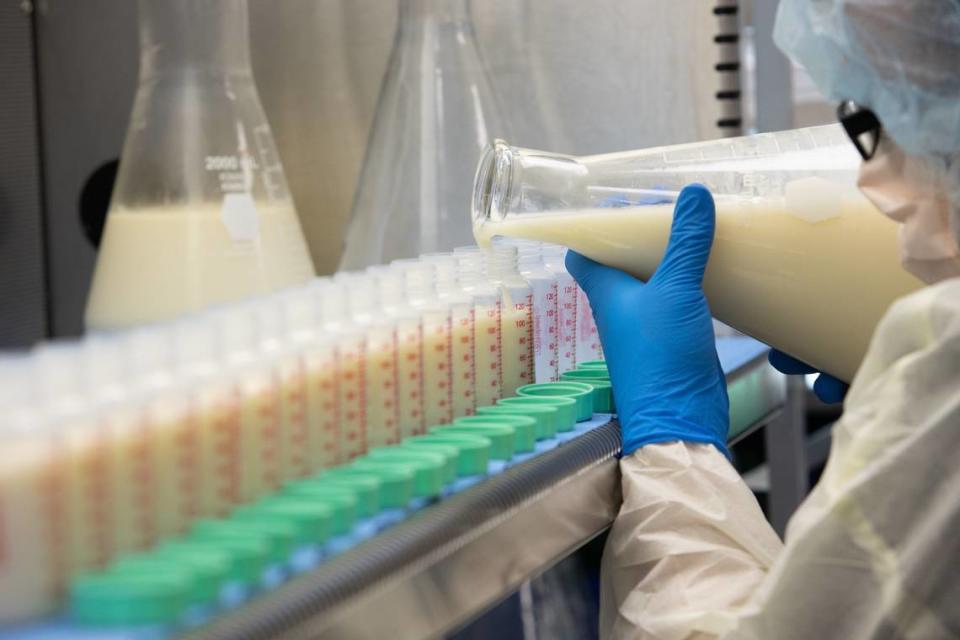NC’s only breast milk donation bank needs more donors to help feed NICU babies
The only breast milk donation bank in the state is seeking more donors to help feed babies in neonatal intensive care units.
Mothers’ Milk Bank, a non-profit housed in WakeMed Health and Hospitals, has reported an increased need for pasteurized milk in several neonatal units, or NICUs, locally and around the Southeastern region.
Some NICUs have asked the organization for three to four times the amount of pasteurized milk as they normally request each week, said Kerrie Gottschall, the assistant manager of Mothers’ Milk Bank.
Raw milk, however, is first required to pasteurize the milk, and the organization needs to have a plentiful supply to meet the demand, she said.
Mothers’ Milk Bank usually sees an increase in raw milk donations around the holidays, followed by periods of decreased donations. But this summer, the increased need for more raw milk has been “unprecedented,” Gottschall said.
The reasons for the increased demand are hard to determine, according to the organization.
The nation’s formula shortage has played a role in the increased demand for donor milk, though it’s not intended as a long-term replacement. As more milk is pasteurized, the raw supply of breast milk decreases, Gottschall said.

Meeting a community need
Currently, the milk bank has about 270 active donors and dispenses more than 250,000 ounces of donor milk to hospital NICUs each year. The organization has been servicing the area since 1985.
All NICUs in WakeMed’s hospitals get donor milk as well as the more than 40 partners the milk bank works with in the region, Gottschall said.
More than 10,000 premature babies are born in the state every year, and donor milk can be life-saving. Some babies aren’t able to breast feed, Gottschall said.
Gottschall said breast milk also lowers the risk of a common intestinal disease known as necrotizing enterocolitis, or NEC, in premature babies.
“A cold to you or me ... in a NICU baby (it) could kill them,” she said. “We’re just extra stringent, and our requirements are stricter than CDC guidelines because the population we’re serving is so vulnerable.”
How to donate milk
Donations are needed on a continuum, she said. The organization is planning for future shortages to ensure premature babies have milk.
Potential donors are required to go through a screening process to ensure their milk can be used and given to the babies, Gottschall said.
“Once they’re an approved donor, that time frame is about 4-6 weeks,” Gottschall said. The process for pasteurizing milk is a long one, she said.
Gottschall said they are asking all moms who are in good health who have had a baby in the last two years and have an extra supply or milk to donate to Mothers’ Milk Bank.
There are some restrictions to raw milk donations, and individuals are not eligible if they have a positive blood test for HIV, HTLV, Hepatitis B or C, or Syphilis, are at risk for HIV, use illegal drugs, smoke or use nicotine products, have received an organ or tissue transplant, or regularly drink more than two alcoholic beverages a day.
More information on how to donate raw milk and about Mothers’ Milk Bar can be found at WakeMed.org.

 Yahoo Movies
Yahoo Movies 
